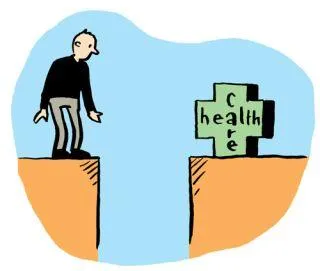Marginalised patients face systemic bias in South Africa's healthcare system

Attitudes to who is deserving of health care can create massive barriers for marginalised groups seeking help.
Image: Supplied
In a revealing examination of healthcare inequalities in South Africa, a recent study from the University of Cape Town (UCT) has uncovered persistently harsh perceptions regarding the worthiness of patients among clinicians.
Dr Sara Jacobson’s PhD thesis, titled “There is a human being there”: A Critical Pedagogic Approach to shifting perceptions of patient worthiness in South Africa, highlights a worrying trend whereby socially marginalised individuals - ranging from sex workers and LGBTQ+ community members to the unhoused - are considered less deserving of essential health resources.
The study sheds light on how these biased perceptions lead to dehumanising treatment in healthcare settings, consequently impacting health-seeking behaviours and outcomes for those deemed “unworthy.” Jacobson’s research indicates that patients classified under this label may end up receiving inferior care or, alarmingly, may be outright denied access to health services.
“Worthiness determinations on the part of clinicians, support staff, and even patients from the general population justify dehumanising actions that harm socially marginalised patients, maintain social and institutional hierarchies, and preserve the unequal status quo,” Jacobson says.
Despite existing in-service learning strategies aimed at addressing this inequity, the findings suggest that little progress has been made in changing clinician attitudes towards certain groups. Traditional training approaches, often termed “sensitivisation,” have proven largely ineffective.
Instead, Jacobson advocates for a more transformative dialogue-based methodology. Through a year-long engagement with nurses and cross-border migrants, this study encouraged critical reflection on entrenched assumptions and beliefs that perpetuate these harmful biases.
“Critical reflection on problematic assumptions, motivations, and beliefs through dialogue provides an alternative to traditional in-service sensitisation training and holds promise as a strategy to deter worthiness determinations,” Jacobson says. This innovative approach is designed to foster deeper understanding among healthcare professionals, ultimately shifting the narrative around who is deserving of care.
The implications of this research are significant. As South Africa continues to grapple with social inequities, the study highlights an urgent need to re-evaluate how value is assigned in healthcare settings. Addressing this issue not only contributes to better health outcomes for marginalised communities, but also aligns with the broader goal of health equity on a socio-political scale.